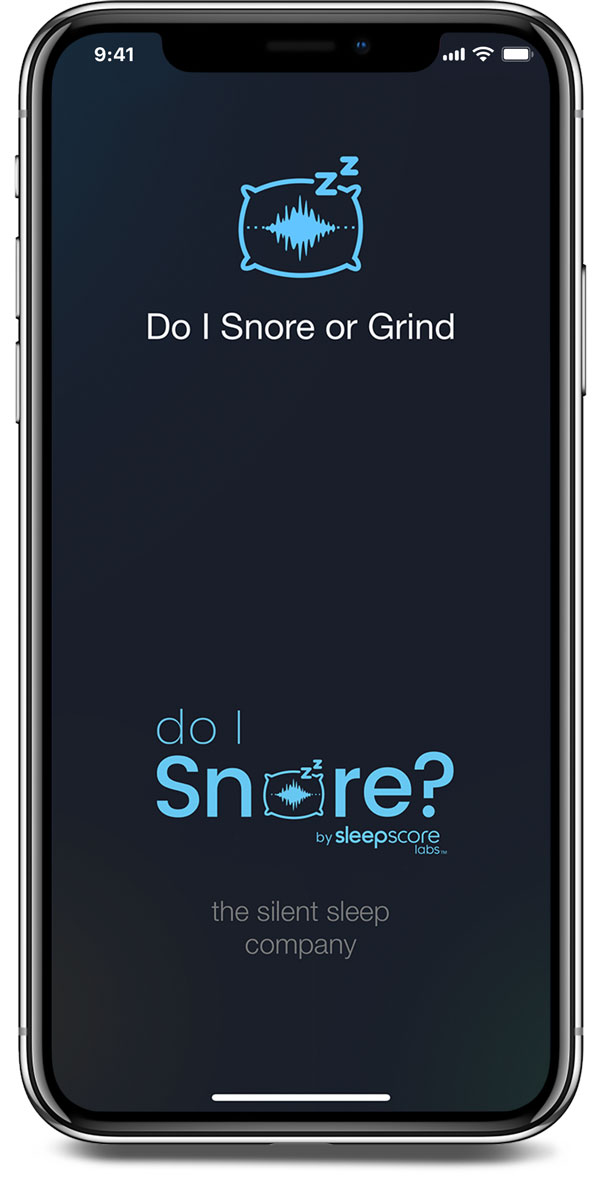Let’s face it. Snoring or teeth grinding isn’t fun for anyone. Both snorers and their partners face nights full of interruptions, resulting in groggy mornings and often resentful feelings towards one another. And sometimes, your partner says you snore or grind your teeth, but you might not believe them. Or, you swear your bed partner was sawing logs all night, but they deny it. Sound familiar?

Find out if you or your partner REALLY snore or suffer from bruxism with the FREE Do I Snore or Grind app by SleepScore! Featuring a customized algorithm that detects and records snoring sounds so you can:
Play sounds back in the morning and hear when and how much you’re snoring at night
Take a snoring test to quickly find out what kind of snorer you are
Find the right products for your type of snoring & more!
Download the FREE Do I Snore or Grind App today!
Did you know?
One out of three adults snore, and some studies even report numbers as high as 86 percent of men and 57 percent of women.
In Kryger M, Roth T, Dement W (ed.), Principles and Practice of Sleep Medicine (5th Edition), St. Louis: Elsevier
The prevalence of sleep bruxism in the general population is 8%. A variety of factors play a role in the multifactorial etiology: psychosocial (stress, anxiety), biological (neurotransmitter abnormalities, genetics), and exogenous (medication, smoking, alcohol).
AADSM: https://aadsm.org/docs/jdsm.10.10.18.o1.pdf
In Kryger M, Roth T, Dement W (ed.), Principles and Practice of Sleep Medicine (5th Edition), St. Louis: Elsevier
The prevalence of sleep bruxism in the general population is 8%. A variety of factors play a role in the multifactorial etiology: psychosocial (stress, anxiety), biological (neurotransmitter abnormalities, genetics), and exogenous (medication, smoking, alcohol).
AADSM: https://aadsm.org/docs/jdsm.10.10.18.o1.pdf


